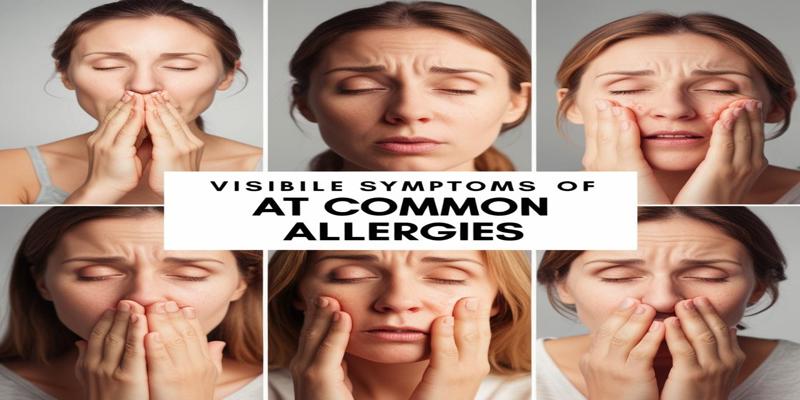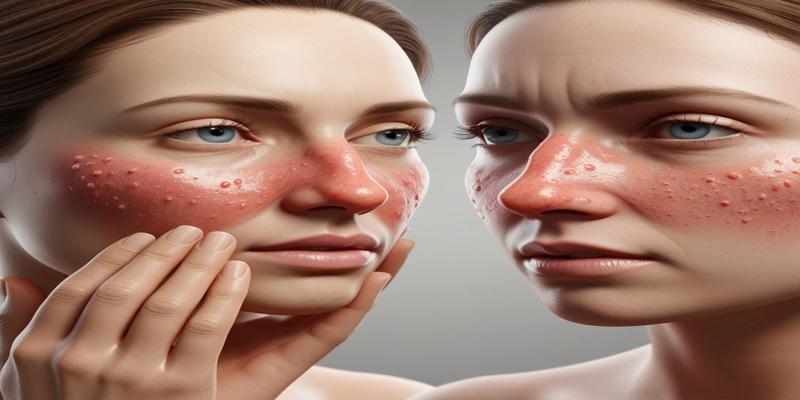Advertisement
Have you ever wondered if those pesky allergies that haunted you for years may disappear someday? You are not alone. So many people with allergies dream about outgrowing them over time. And though this is true to some extent, some people do indeed experience a diminishment of symptoms with the passing of time. The truth is a bit more complicated.

Allergies are hyperreactions of the body to substances that are otherwise innocuous but generally known as allergens. When exposed, the body's immune system mistakenly identifies the same allergens as injurious and sets off a hostile attack against them, leading to symptoms that are quite distressing, to say the least, and debilitating on certain occasions.
Allergens come in various types and include:
These triggers can bring on reactions ranging from mild, such as sneezing and runny nose, to severe ones, including itchy eyes, hives, or, most dangerous of all, anaphylaxis, a potentially life-threatening reaction.
The immune system is responsible for a type of antibody called Immunoglobulin E-or IgE-as the root of allergic reactions. These antibodies stimulate immune cells to release chemicals, such as histamine, which subsequently cause inflammation and allergy symptoms.
Many parents wonder if their child will eventually outgrow a food allergy. Luckily, some allergies diminish or fade as a child ages. How likely this is to happen depends on the kind of allergy and the individual child.
Food allergies are among the more common allergies in children that might be outgrown. It's estimated that 80% of children with milk or egg allergies will naturally outgrow their allergies by age 16. This also applies to peanut allergies, which were believed not to be outgrown, but it turns out that about 20% of people do.
While less common, it is possible to outgrow environmental allergies, including pollen or pet dander. For these allergies, the pattern of clinical improvement may differ, where apparent improvement during adolescence is followed by recurrence in adulthood.
A number of factors determine whether a child will outgrow their allergies:

Several determinants define the possibility of outgrowing allergies. Being aware of such will help you cope with the condition and have realistic expectations for possible changes. The factors include the following:
Generally, allergies that occur early in childhood are more likely to be outgrown than those that occur later in life. For instance, most children who develop milk or egg allergies before the age of one have a high chance of outgrowing them during adolescence.
The type of allergen is the most critical determinant of the possibility of outgrowing an allergy. Regarding food allergies, most children outgrow their milk, egg, and soybean allergies. In contrast, peanut, tree nut, and shellfish allergies are seldom overcome by environmental allergies.
The intensity of allergic reactions can indicate the likelihood of outgrowing an allergy. Milder reactions are generally associated with a higher chance of outgrowth than severe or life-threatening reactions.
Your genetic makeup can influence your susceptibility to allergies and the likelihood of outgrowing them. A family history of allergies may decrease the chances of outgrowing certain allergic conditions.
Living with allergies is a challenge, and fortunately, some measures could alleviate symptoms and improve the quality of life. You can minimize the extent to which allergies disrupt your daily activities by being proactive:
The first step in managing allergies is to identify your specific triggers. Work with an allergist, undergo comprehensive testing, and pinpoint what substances cause your reactions. Once identified, steps should be taken to avoid or minimize exposure to such allergens. This may be through air purifiers, keeping windows shut when pollen is heavy, or removing carpets harboring dust mites.
Over-the-counter antihistamines, nasal corticosteroids, and decongestants could alleviate symptoms of allergic reactions. In more severe cases, your physician might suggest any one of several prescription medications or immunotherapy. Allergy shots or sublingual tablets can eventually desensitize your immune system to specific allergens and decrease or eliminate symptoms.
Simple changes in daily life may go a long way. Regular cleaning, hypoallergenic bedding, and showers when returning from the outdoors can minimize the amount of allergens one is exposed to. Healthy nutrition, coupled with regular exercise and the least possible amount of stress, increases a person's immunity to allergic reactions in general.
Though living with chronic allergies is tiring, there are effective ways of managing your symptoms and improving your life. Here are some essential methods to consider:
Work closely with your allergist to determine the best medication regime for you. This could be a combination of antihistamines, nasal corticosteroids, and other targeted medications. Remember to take them as prescribed and consistently to achieve overall effectiveness.
Avoid exposure to your particular allergens; this may be through air purifiers, frequent cleaning of the living environment, or simply changing daily habits to avoid triggers.
For long-term symptom alleviation, consider allergen immunotherapy. This type of treatment is available as shots or sublingual tablets. Over time, it makes your body resistant to specific allergens, reducing or eliminating symptoms.
Incorporate those things that encourage general body health and boost your immune system, such as a healthy diet, regular exercise, stress management, and adequate sleep. This will complement your prescribed treatments for your case and improve your body's resilience against allergic attacks.
Stay updated on allergy research and treatment. Meet regularly with your health care provider to reassess your allergy management plan and explore new possibilities for symptom control. Remember that you may not outgrow your allergies, but you can learn to live with them.
Conclusion: While outgrowing the allergy is possible, it's not certain. Your best approach is to work closely with an allergist to manage your symptoms and explore treatment options.
Advertisement

By Triston Martin/Dec 28, 2024

By Juliana Daniel/Mar 01, 2025

By Martina Wlison/Nov 14, 2024

By Sean William/Mar 01, 2025

By Celia Kreitner/Mar 01, 2025

By Sean William/Mar 01, 2025

By Pamela Andrew/Mar 17, 2025

By Susan Kelly/Dec 28, 2024

By Celia Shatzman/Nov 14, 2024

By Vicky Louisa/Dec 28, 2024

By Maurice Oliver/Nov 14, 2024

By Maurice Oliver/Mar 18, 2025